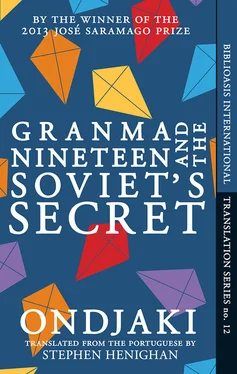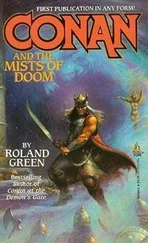3.14 was right: everything was empty, open, the machinery abandoned, shovels and picks lying on the ground, even an open toolbox where we went to rip off a brand-new pair of wire cutters.
“You never know when you might need them,” 3.14 said in a serious voice.
“You figure we got time?”
“At least to start. You ready?”
“For what?”
“We’re gonna place the dynamite.”
“Place it where?”
“In the spots we judge to be the best.”
“And how are we gonna know that?”
“Are you touched? How long have we known our way around this construction site?”
“Since we were born.”
“Then it’s just a question of choosing. Remember that this is a big circle and everything depends on the quantity of dynamite. All we have to do is set it right, spread it around, and that’s all it takes for the old cowboy to go west, as they say in the movies.”
“I don’t know if the dynamite is powerful enough to break up all this cement, Pi.”
“Don’t start making things up. If cowboys can dynamite mountains, how can a Mausoleum built by drunken Soviets not go flying? Just remember the cardinal points we studied in school.”
“What for?”
“I already thought about it. I already divided everything up: your granma’s house there is the north.”
“So what?”
“We’re going to divide everything into eight sections. I get the north, the south, the east and the west.”
“How come I get the others?”
“Because I don’t remember the other points’ names.”
“I figure it was… Northeast… Northwest… Souteast…”
“Souteast or southeast?”
“Maybe southeast. And then another one I don’t remember…”
“It doesn’t matter. Wherever there’s a gap, you put one. Now let’s go.”
There was a watchtower, I mean there were two of them, but only one oversaw the storage shed and had a Soviet guard, who was always very seated and asleep.
“You figure he’s asleep?”
“Let’s just go. If they catch us, we say that we came to give back these wire cutters.”
We ran towards the storage shed, which wasn’t actually as small as it had seemed. It had closets with many shelves and smelled strongly of food and birdshit. When we entered we had to close the door; we stood in a darkness that was almost frightening because the birds started to make noise, and that scared us a little.
“Jeeze! I can’t see anything,” 3.14 said in a frightened voice. “I’m probably gonna slip on some grenade.”
“You figure they got grenades in here?”
“I don’t know. They say Soviets are crazy about keeping grenades under their pillows.”
“You’re always making stuff up.”
“I’m not making it up; they do that in war zones. That way when they run out of bullets they can still throw a grenade that kills at least five people.”
“Five? I think you’re exaggerating.”
“It doesn’t matter, don’t move. We’re just gonna wait for the birds to quiet down and make sure the watchman in the tower hasn’t heard anything. Don’t you have matches with you?”
“You want me to light matches in a room full of dynamite?”
“Didn’t Senhor Tuarles say dynamite couldn’t be lit with a normal match?”
“Who’s saying my matches are normal? What if they’re abnormal, or ‘unexpected,’ as you say?”
“But do you have some or not?”
“Of course I don’t have any! I don’t walk around every morning with a box of matches in my pocket.”
“You could have got some. You knew the mission was going to take place at any moment.”
“We’d agreed it was going to happen at night.”
“But the world is full of surprises, Comrade, and we have to take advantage of them. So how are we going to see?”
“We’ll just wait a little.”
“What for?”
“We’ll just wait a little. Our eyes are going to get used to it, you’re going to start seeing in the darkness.”
“See in the darkness? I’ve never done that.”
“But you’re going to now. The darkness is like a joke: it’s over quickly.”
And soon it happened. He even gave a laugh of amazement. “You’re right.”
Of course it wasn’t seeing with the beautiful clarity of perceiving the differences between the pretty colours on the crests of those dumb birds that were all crammed in together, tons of them, in pretty cages that seemed to be made of a wicker-like material, perhaps to make them look like fishing baskets in the river that we had studied at school. The poor birds were crammed together, big ones mixed with small ones, the short-billed with the long-billed, some that seemed to fly a lot with others that only liked to fly a little. In the dim light it wasn’t even possible to tell which was which; all we could see with absolute certainty was that, in other cages, there were much bigger, much prettier parrots than Just Parrot and His Name.
The birds were such good friends to us that they all shut up and we stood listening to each other’s breathing and to the tiny noises that their claws made in the papers at the bottom of each cage.
“Poor little things, all alone here in the darkness.”
“The problem is, they can’t fly.”
“Look at the boxes.”
By luck, the dynamite was all on the two lower shelves, where we were able to get at it. If the boxes with their danger signs, with death’s-heads and fire symbols, had been higher up, they would have been more difficult to reach. The words were all in Russian, or even Soviet, I’m not sure which.
“Are you going to open it?”
“Yeah.”
“You’re not afraid?”
“Afraid of what?”
“That it’s booby-trapped?”
“Is a box of dynamite going to be booby-trapped? You’ve watched too many shoot-’em-up movies.”
It was just like in the movies: long, russet-coloured bars, with a little thread at the end where you lighted it.
“How many can you carry?”
“Let me see how much they weigh.”
They weren’t heavy and, in fact, were thinner than they looked.
“Four for each of them?”
“There are going to be eight holes. We can put two in each hole.”
“Okay.”
Each of us stuck four pieces of dynamite into his belt, and took two more in each hand. We peeked out before we left: the ruckus on the beach seemed to be even bigger. The watchman in the tower was asleep with his head resting on his crossed arms.
“What do we do now?”
“I’m going to explain it to you quickly. This is a circle, so you already know I’m going to do the four cardinal points. You do the others, even if you don’t know their names.”
“Okay.”
“Over there where there are those round holes for planting trees later, that’s where we put the dynamite. Dig, bury it, but leave the wick exposed.”
“Are we going to light the wicks now?”
“Now, with a pile of soldiers and police on the beach? Of course not; but be ready.”
“When you’re finished we’ll meet on Dona Libânia’s sidewalk.”
“Okay.”
“And nobody tells on anybody if we’re caught.”
“Agreed. Courage, Comrade!”
We took off running, each of us heading in the direction of the cardinal points of his mission. I rounded a corner, found the first hole. The sand was soft. I dug and saw that I had lingered too long because I was burying the two sticks of dynamite standing up, and that was a waste of time. At the second hole I had already decided to bury the bars lying down, like two people who lie close to each other in the cemetery, but here the sand was harder and digging bruised my fingers.
When I was on my way to the fourth hole — I think it was the point between south and west, maybe you could call it south of the west — in my sweaty-fingered rushing around the dynamite fell out of my hand and went rolling off on its own like a cat running away in fear. I heard voices at the gate. I hid, trying to see where the dynamite had stopped rolling. I heard footsteps on the other side of the wall and I started to shudder with fear. I was going to get caught and they were going to find the dynamite, too.
Читать дальше












